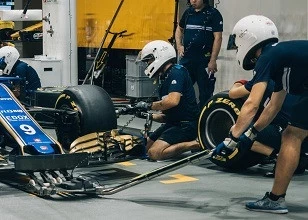Continuous Improvement from Concept to Culture
Add bookmarkEconomic turbulence has brought the concept of value back into focus, with businesses worldwide frantically searching for ways to keep costs down and avoid potentially damaging price increases. Enter continous improvement and its most important element culture.
As global commodity prices soar and firms in every industry face increasing margin pressure, the importance of efficiency and cost savings has arguably never been more relevant, especially as economic recovery begins.
While there is certainly no one-size-fits-all solution to the issues facing companies in the recession's wake, there is one common approach that has delivered results across countless categories for decades.
Continuous improvement is essentially the process of identifying ways to cut costs through any sustainable means. Its most widespread application is in process excellence – an approach demonstrated particularly well in manufacturing by automotive giants like Toyota and Honda.
[eventPDF]
For years, commentators have argued, however, that the key to process excellence does not lie in the mere logistics of rolling out a continuous improvement programme. Alan Nicol, an experienced cultural change leader with a background in engineering and product development, recently echoed this view in the journal Manufacturing Business Technology (MBT).
Mr Nicol believes that the "true power" of lean methodology is in "deep cultural change, whereby everyone in the business exercises problem-solving skills, habitually and relentlessly". And he was quick to stress that it is not only manufacturing firms that stand to benefit from harbouring a culture of process excellence. Sectors ranging from insurance and banking to healthcare and pharma are able to embrace lean methods.
"Many of the businesses adopting lean have benefited greatly. However, very few have achieved the level of performance and business benefit from the programme that they originally imagined - because the deep-rooted behaviours from which the lean methodology was derived have not been established," the expert said. Mr Nicol went on to draw from the example of Toyota, as its lean production inspired mass take-up of its principles during the 1990s. Toyota appears to be "everyone's favourite" business to benchmark, he noted.
However, a few simple facts are frequently overlooked, Mr Nicol argued. "Toyota doesn't have a lean 'programme', or a philosophical 'way', and the product development system we all read about a few years ago isn't likely to be the same today. I believe the answer is that Toyota only has one secret. Toyota has a culture in which every member of the business tries to make life at Toyota better for himself and his team and for Toyota."
For companies to get the most out of their process excellence activities, requires more than just tools and training – the entire organisation must become a "nest of tinkerers".
But in order for a completely new behaviour set to be achieved, businesses must find ways of instilling a uniform culture based on just a few basic attitudes.
Mr Nicol explained "Your people must want to tinker. Ultimately, they should tinker because if they make an improvement, they will feel the benefit. This may be like teaching someone the benefits of keeping his workspace clean."
While it begins as an expectation triggering rewards when met, it should eventually become intrinsic to the culture of the workforce. "You want him to be proud of a clean space and ashamed of a messy one," Mr Nicol added, strengthening his example.
But businesses also need to empower their staff to tinker, providing the tools and process technology required to do so, as well as adequately training them in how it might be done.
Ultimately, the aim is to have these attitudes permeate the entire organisation, with each individual feeding off one another's enthusiasm for the lean concept. "You want everyone teaching everyone else what he has learned. You also want everyone learning regardless of who is sharing," Mr Nicol concluded. "If you want more from continuous improvement … go further and build the tinkerer culture. It's what makes Toyota the business to chase and it will do the same for yours."




























